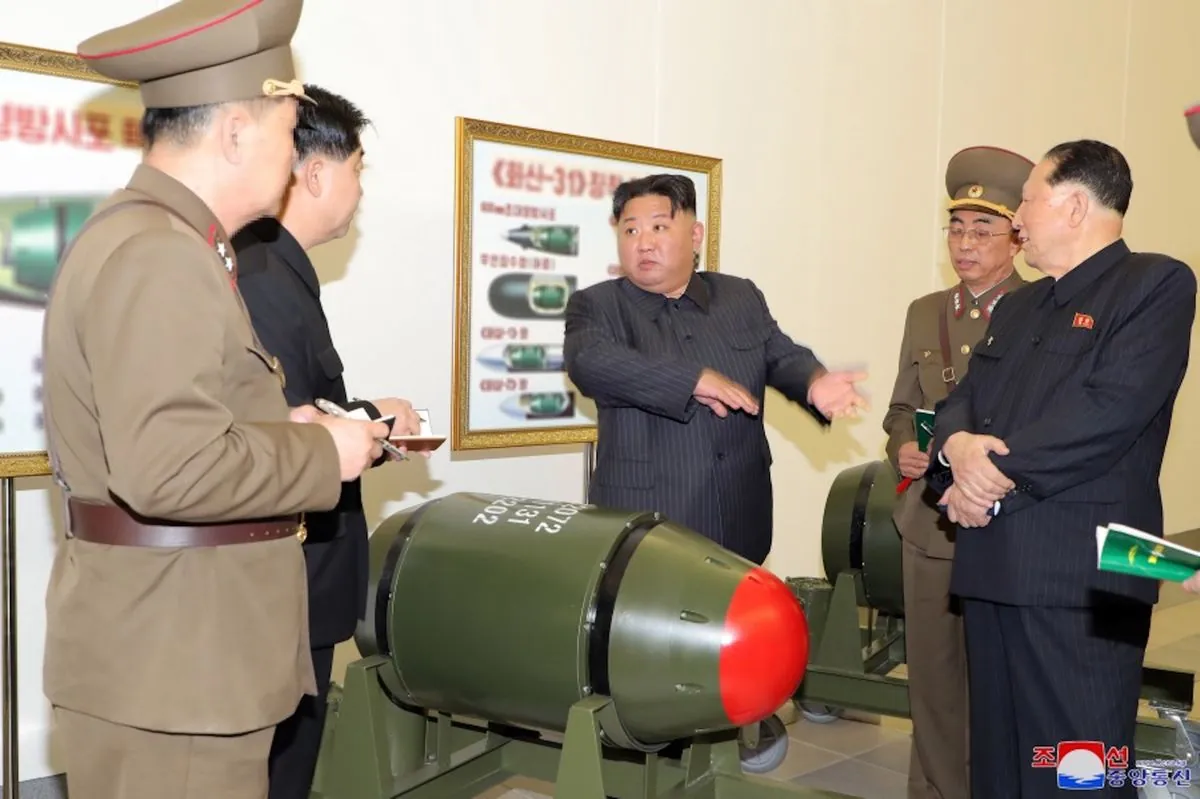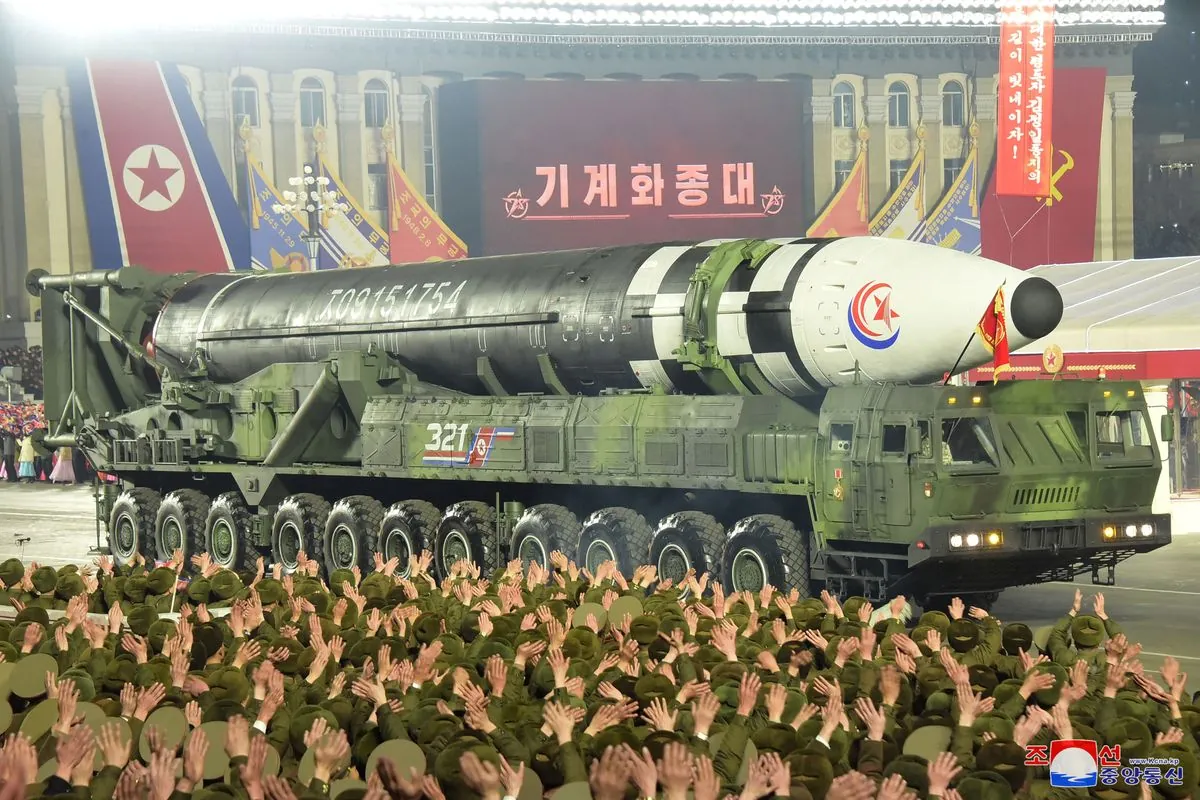North Korea Vows to Boost Nuclear Arsenal, Citing U.S. Threats
North Korea's leader announces plans to exponentially increase nuclear weapons, citing U.S. threats. South Korea prepares for defence meeting with UN Command members amid rising tensions.

In a recent address marking North Korea's founding anniversary, Kim Jong Un declared the nation's intent to significantly expand its nuclear arsenal. The leader emphasized the need for enhanced nuclear readiness to counter perceived threats from the United States and its allies.
Kim Jong Un stressed the importance of bolstering North Korea's nuclear capabilities to ensure national security. He stated that the country must be prepared to utilize its nuclear arsenal "properly at any given time" to safeguard its interests.
North Korea's nuclear program, which began in the 1950s, has been a source of international concern for decades. The country conducted its first nuclear test in 2006 and has since carried out five more, with the most recent in 2017. As of 2024, North Korea is estimated to possess 20-30 nuclear warheads.
The leader's announcement comes amidst heightened regional tensions. Kim Jong Un specifically mentioned a "grave threat" posed by what he described as a U.S.-led nuclear-based military bloc in the region.

In response to these developments, South Korea is set to host a defence ministerial meeting with member states of the United Nations Command (UNC) on September 10, 2024. The UNC, established in 1950 during the Korean War, is led by the commander of U.S. forces stationed in South Korea.
The UNC's role in monitoring the heavily fortified border between North and South Korea has recently expanded. In August 2024, Germany became the latest nation to join the command, a move that North Korea has criticized as escalating tensions.
North Korea's nuclear ambitions have led to multiple UN Security Council sanctions since 2006. The country withdrew from the Nuclear Non-Proliferation Treaty in 2003 and has since pursued a "Songun" or "military-first" policy.
International efforts to denuclearize North Korea, including the six-party talks held from 2003 to 2009, have thus far been unsuccessful. The country's development of various ballistic missiles, including ICBMs, continues to be a major concern for the global community.
As tensions persist, the international community remains vigilant, with the Demilitarized Zone (DMZ) serving as a stark reminder of the unresolved conflict on the Korean Peninsula.
"We must more thoroughly prepare our nuclear capability and its readiness to use it properly at any given time in ensuring the security rights of the state."
This declaration underscores the ongoing challenges in achieving stability and denuclearization in the region, as North Korea continues to prioritize its nuclear program as a cornerstone of its national defense strategy.


































